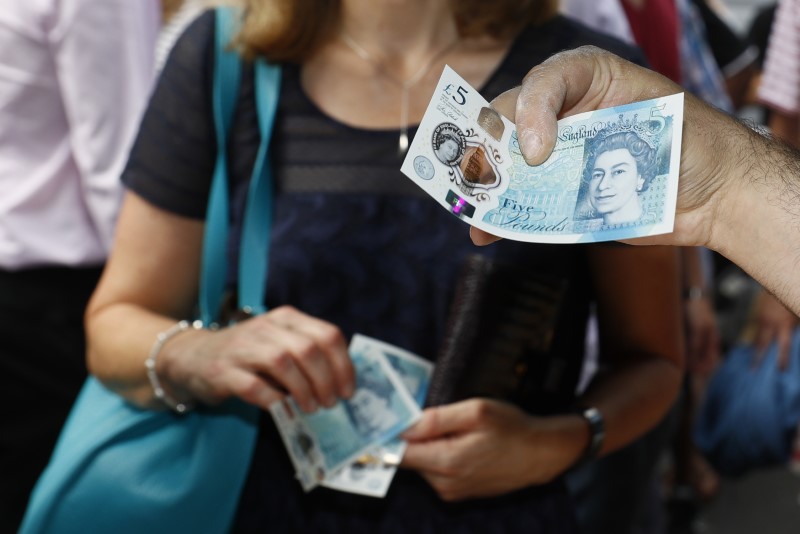Investing.com - The pound dropped below the 1.3000 level on Thursday as a result of an unexpected drop in consumer spending in June, further slimming the chances of a Bank of England rate hike in August.
At 10:35 GMT, GBP/USD was 1.2997, down 0.55 percent, the lowest level for the cable since September 2017.
Retail sales month over month fell by 0.5% in June, lower than the expected increase of 0.1%. Sales for May were revised upward from 1.3% to 1.4%. The core retail sales figure, which excludes automobiles and fuel, fell by 0.6% - lower than the expected drop of 0.3%.
Overall retail sales growth for the second quarter came in at the strongest level since 2004 despite the fall in June. The month of June is purported to have been weaker as a result of hotter weather and England’s unexpected success in the World Cup.
The combination of wage growth, soft inflation and now disappointing retail sales for the month of June may give the Bank of England food for thought when the Monetary Policy Committee meet in August to set interest rates.
While chances of a hike have somewhat diminished this week as a result of softer data causing sterling to struggle, the pound was also pressured by a stronger dollar.
The U.S. Dollar Index, which measure the strength of the greenback against a basket of six currency majors was 95.22, up 0.40 percent.
The dollar was supported by positive comments regarding the US economy from the new Fed Chair Jay Powell on Wednesday.
Ahead of retail sales release, the pound was up 0.1 percent against the euro, however following the data release, EUR/GBP was 0.8929, an increase of 0.26 percent for the single currency.
EUR/USD was down 0.31 percent to 1.1603.
Sterling dropped against safe haven Japanese yen and Swiss franc. GBP/CHF was down 0.20 percent to 1.3030, while GBP/JPY was 146.94, down 0.37 percent.
With no major data releases ahead for sterling in the coming week, it may be further at the mercy of political developments.
Brexit has weighed heavily on the pound. The chance of a no deal Brexit looks more likely as Prime Minister Theresa May’s grip over the Conservative Party loosens, as shown by the resignations of leading cabinet figures including David Davis and Boris Johnson.
The Financial Conduct Authority advised banks on Thursday to prepare for a hard Brexit scenario.
